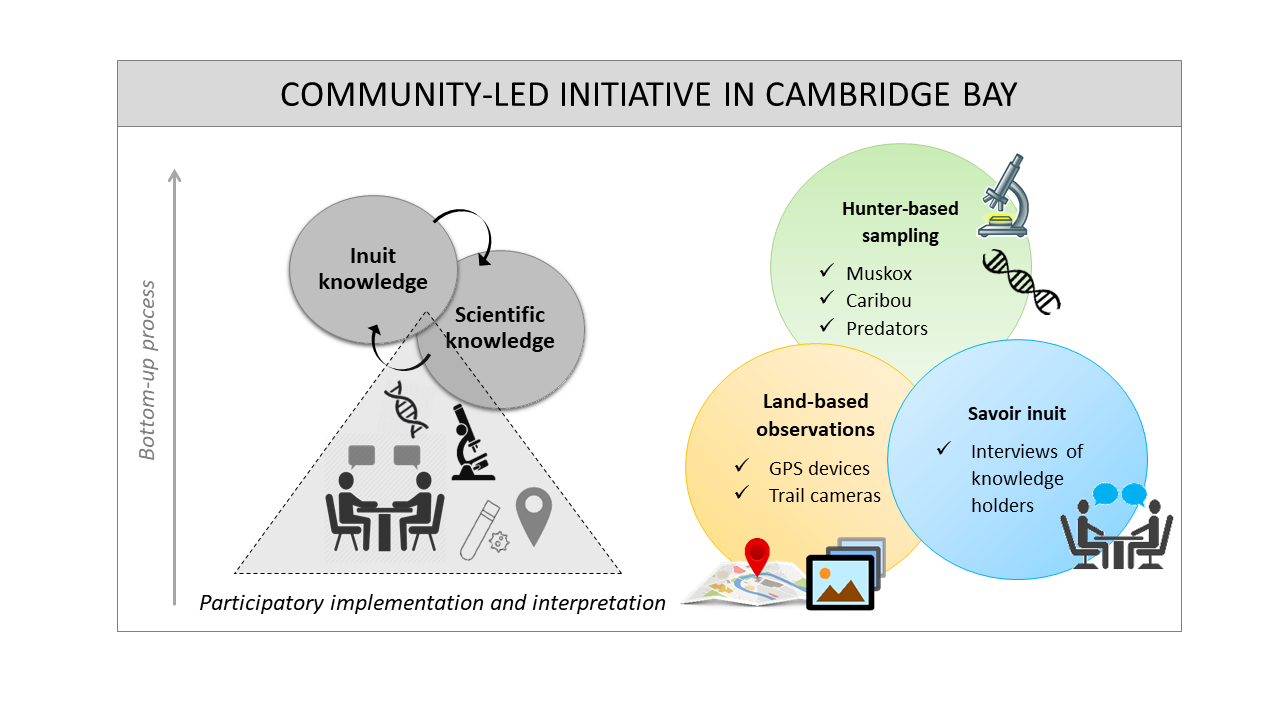One Health: caribou, muskoxen, and people on Victoria Island, Nunavut
Our health is linked to the health of the environment and of the plants and wildlife we share it with. Indigenous peoples have always understood this, and maintain a close relationship with the natural world. Now, environmental scientists around the globe are working with Indigenous experts to improve the health of wildlife, and by extension, humans.
They're using a concept called One Health, which the World Health Organization defines as "an integrated, unifying approach that aims to sustainably balance and optimize the health of people, animals and ecosystems".
According to POLAR research veterinarian Dr. Matilde Tomaselli, One Health means respecting the environmental knowledge of communities, and working with local experts on the issues that concern them. Tomaselli uses this approach to study the health of the muskox and caribou populations on Victoria Island, Nunavut. Inuit in Cambridge Bay depend on these herds for part of their food supply, but hunters have noticed that their health is declining.

Inuit harvester Julia Ogina (left), shares her knowledge of muskox health with Matilde Tomaselli in Cambridge Bay, Nunavut. Photo: Matilde Tomaselli from Kutz and Tomaselli 2019, Science
"Our project is driven by the Hunters and Trappers Organization in Cambridge Bay," says Tomaselli, "and their priorities and concerns are the focus. It's a bottom-up process, with Inuit knowledge and science working together to monitor the health of muskoxen and caribou as well as their predators—wolf, wolverine and grizzly bear."
With advice from the Ekaluktutiak Hunters and Trappers Organization (EHTO), Tomaselli designed monitoring activities that make the combined Inuit knowledge and scientific knowledge approach possible. These include methods the EHTO had already established, like sampling kits that hunters use to take samples of wildlife, and rugged hand-held tablets to record observations on the land. They also include activities the EHTO was interested in developing further, such as using remotely triggered wildlife cameras.

"Community-driven program to monitor muskoxen, caribou and predators on Victoria Island": project overview. This illustration is adapted from an article by Tomaselli and her colleagues that will be published in Case studies in EcoHealth.
Since its start in 2019 the project, which is supported by the Nunavut General Monitoring Plan, with additional funds from POLAR, has collected many samples and much information from Inuit experts. "Before the project ends later in 2023," says Tomaselli, "we will combine all the information derived from sample analyses and observations on the land with traditional and local knowledge obtained through interviews with knowledge holders. We will summarize it all in a form that is easy to understand and utilize."
This One Health project is bringing new understanding of the many factors that influence the health of caribou and muskoxen. It will enable Cambridge Bay hunters to help develop the effective conservation and co-management measures needed to maintain the health of these animals —and in turn, the people who depend on them.
Polar Knowledge Canada
For media inquiries, contact:
communications@polar-polaire.gc.ca